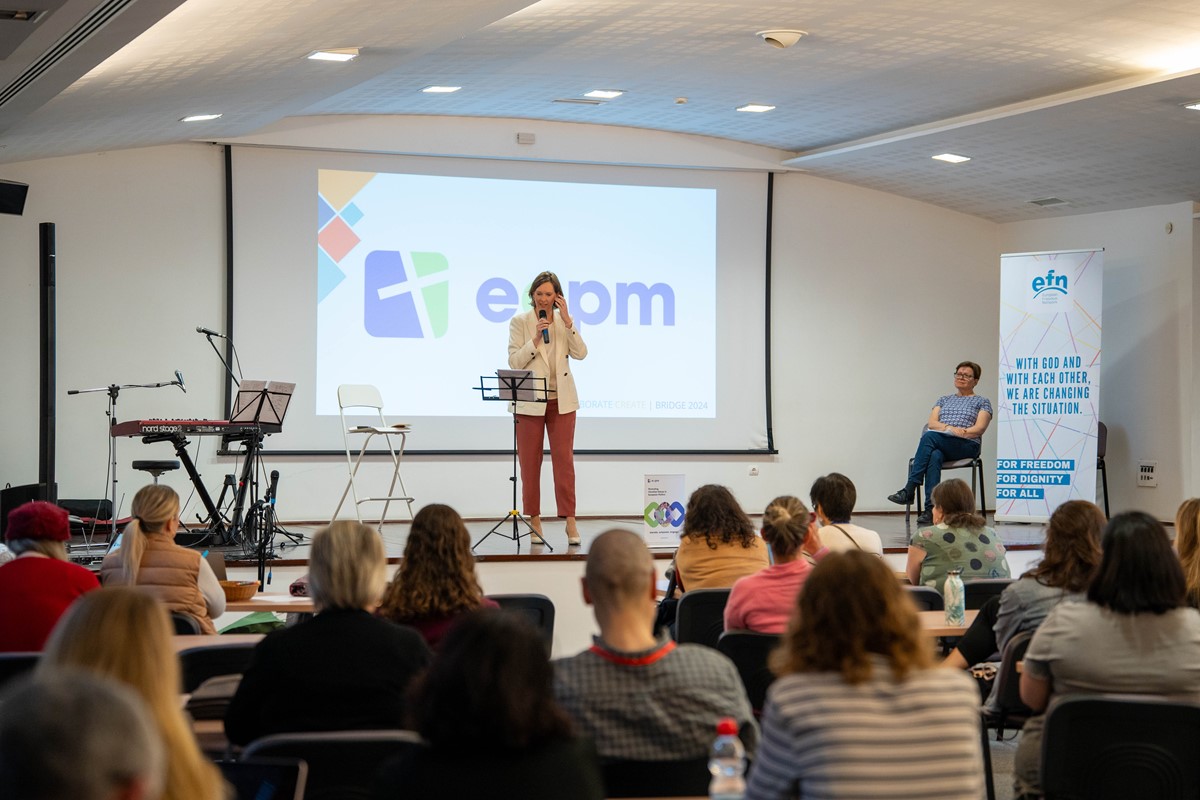
Thursday, March 21, 2024
European Freedom Network- The Bridge Conference: Connect, Collaborate, Create
This year's Bridge conference theme was 'Connect, Collaborate & Create!' and it gathered over 100 organizations and individuals engaged in fighting modern slavery all over Europe. It took place on 18-21 March in a small town outside Lisbon, Portugal.
The conference opened with an interactive session led by Dr. Leah Edwards, a senior researcher, where the purpose was to see and discuss the trends in the Network. After running a survey among the organizations present in the conference, a panel of representatives had the chance to discuss and reflect on them. We noticed that most organizations witnessed an increase in the number of girls and women being trafficked and that the people the organizations are helping also come from China and Latin America but still a majority are from Eastern Europe. The most concerning trend observed was how prostitution moved online significantly and how young are the girls engaging in it, often underage.
The next day, during the first session, Sheldon Armitage, interim director spoke about the changes and expansion the Network is going through. They thanked Leanne Rhodes (longtime EFN Director who stepped down earlier this year) for her vision and leadership over the years and have introduced one of the directors who will take her place, Christoff Kaufmann. The special relationship with the European Christian Political Movement was highlighted as well and the participants got to hear about the ECPM's work in the European Parliament and our efforts on raising awareness on this issue and the support for the Nordic Model approach.
During the afternoon, the attendees split up into groups focused around specific aspects of the trafficking phenomenon, as part of the collaborate & create side of the conference. One of the groups focused on placing survivors of trafficking at the centre of the healing process, listening to them and letting them lead the way to defining and creating what lasting freedom and aftercare looks like for them. Another group presented how European tools and resources can be accessed to conduct research into the aspects of this problem which does not have enough data; we focused in particular on getting data through interviews with survivors and with traffickers. The other groups focused on raising awareness and prevention work and on organizational care- caring for the staff of an NGO and avoiding burnout.
The third day focused on the role the churches can play in the anti-trafficking work. The co-general secretary of the European Evangelical Alliance spoke about being Jesus' hands and feet for the vulnerable people around us, about being the good Samaritan who binds up wounds and plays an active role in people's healing. She reminded everyone that as followers of Jesus we are all called to engage in justice. The afternoon breakout sessions focused on telling the stories of survivors in ethical ways, making sure we have consent for telling it and resisting the urge to sensationalize it.
The last day of the conference dealt with policy changes organizations and abolitionists would like to see take place. Stieneke van den Graaf, former member of the Dutch Parliament who tabled initiatives related to trafficking and prostitution in the Netherlands, spoke about the Dutch approach to legalize and regulate prostitution and pointed out how later studies have shown the model falling short. She dispelled the myth that prostitution is 'sex work', that it is a job like any other one, and emphasized that there is almost always an element of coercion or pressure, that no woman would choose this lifestyle voluntarily. During the pandemic, it was revealed that the regulatory aspect of prostitution in Netherlands had many gaps and shortcomings, so she concluded that it is not a successful model. The later breakout sessions took a closer look at the Nordic Model and one of the organisations in Germany shared their efforts in this respect and how policy is slowly changing to recognize the victim correctly and to place the blame and burden on the exploiters and sex buyers. Ms. van den Graaf concluded her speech encouraging the organizations to be present and to be vocal in the spaces where they can interact with their elected officials, to ask tough questions, to make lawmakers uncomfortable and to make them see the reality of exploitation and trafficking.